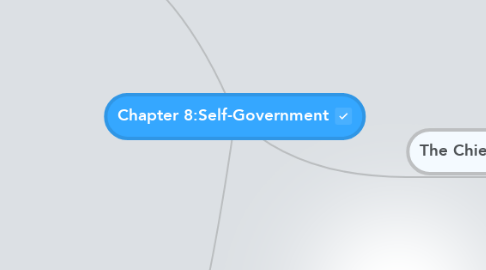
1. Elections
1.1. Total voters are estimated at 525000
1.1.1. This was due to mandatory voting of all eligible Singaporeans
1.1.2. In addition the Citizen Ordinance meant that the number of citizens in the country had increased dramatically
1.1.3. Thus the voting population almost double from the previous election
1.2. 13 Parties took part most prominent of which was the People's Action Party
1.3. The PAP's manifesto was closest to the hopes of the people thus they achieved a land slide victory
1.3.1. Lee Kuan Yew acting leader of the PAP became the first Prime minister
1.3.2. The Party then formed government as it held the majority in the legislative assembly
1.3.3. 43 0f 51 seats were won by the PAP
1.3.4. Yusof Bin Ishak was then named the Yang di Pertuan (Head of State)
1.4. The 1959 elections remarkable increase in all fields of the election process
1.4.1. 204% increase in elected seats
1.4.2. 159% increase in total seats
1.4.3. More than double in amount of Parties
1.4.4. 245% increase in Candidates
1.4.5. A 195% increase in electorate size
2. Merdeka Talks
2.1. First Merdeka Talk
2.1.1. Led by first Chief Minister David Marshall
2.1.2. Inspired by Tunku bdul Rahman's success at his own Merdeka talk that won Malaya Independence
2.1.3. Marshall and a group of ministers left Singapore for London in 1956 to have the first dialogue with the British for internal self-government
2.1.4. The British lacked confidence in both Marshall himself and his ability to quell the communist threat
2.1.4.1. Therefore they dismissed the team without making any concessions
2.2. Second Merdeka Talk
2.2.1. Led this time by Singapore's 2nd Chief Minister Lim Yew Hock
2.2.2. Proving that he could control and remove the communist threat in Singapore the British were more willing to negotiate with the new team
2.2.3. The British allowed for internal self-government with onlyone request
2.2.3.1. The British wanted the responsibility of internal security to be a shared one
2.2.3.2. THey wanted to make sure that communism would not see a come-back and that they could stop it should it occur
2.2.4. The November 1958 Constitution was drawn up with the foundation having been laid during the first Merdeka Talk
2.2.5. Lim Yew Hock announced that Singapore had internal self government on return
2.2.6. Elections were to be held in May 1969
3. The Chief Ministers
3.1. David Marshall
3.1.1. Born 12 March 1908 in Singapore
3.1.2. First locally born leader elected to head the first government
3.1.3. Led the Labour Front and founded the Workers party.
3.1.4. He was made a figurehead by the Governor and treated badly by British officials
3.1.4.1. Marshall forced the Governor to respect his position as a man of the people therefore the Chief minister was made a full-time job
3.1.4.2. He and his party did not get full British support as the British expected a more Pro-British party to win
3.1.4.3. His unwillingness to come done hard on the perpetrators of the Hock Lee bus riots further damaged his reputation amongst the British Officials and Governor
3.1.5. Resigned from the post of Chief Minister in 1956 as he had stated should he have failed to gain internal self-government during the first merdeka talk
3.1.6. He is widely credited for having made proposals during the first merdeka talk that would become the basis of the 1958 constitution
3.2. Lim Yew Hock
3.2.1. Born 1914 in Singapore
3.2.2. Being the second most influential leader in the Labour Front Lim yew Hock succeeded David Marshall for the post of Chief Minister
3.2.3. He employed an entirely new tactic to gain internal-self government
3.2.3.1. First He did not believe in threatening the british into offering any further concessions
3.2.3.2. Secondly he would use firm action to crack down on communism alongside his British Counter-parts
3.2.3.3. Hoping inevitably that the British confidence in him would be enough that he could request internal self government just as his predecessor did
3.2.4. Won Singapore the right to internal self-government in via the second merdeka talks that occurred just 1 year after the previous one led by former chief minister David Marshall
3.2.5. Stepped down from office in 1959 after his party no longer could form the government that right went on to the PAP

